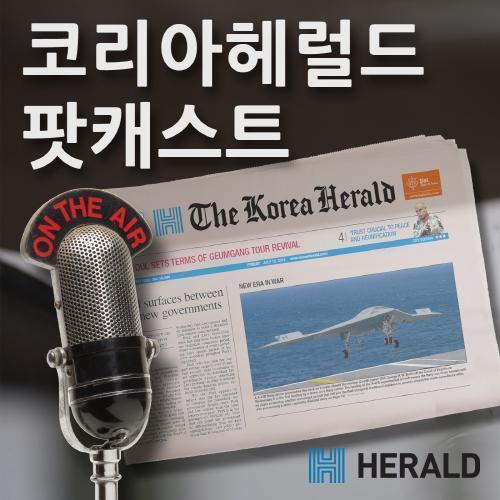
[기사요약]
한국은행은 2014년 경제성장률 전망치를 기존 4.0%에서 3.8%로 하향조정을 했으며 10월 기준금리를 2.5%로 동결했다. 미국 정부 폐쇄, 부채한도 협상 난항, 양적완화 축소 등 여러 외부 요인들로 인해 불가피하게 내년 한국 경제 전망을 수정하게 됐다.
(1) The Bank of Korea on Thursday revised its 2014 growth outlook for the Korean economy down to 3.8 percent from its initial forecast of 4.0 percent after its monetary policy committee unanimously decided to keep its key base rate unchanged at 2.5 percent for October.
*Bank of Korea (BOK): 한국은행 (중앙은행)
*revise down: 하향조정, 수정
*outlook: 전망
*key base rate: 기준금리
*monetary policy: 통화정책 (monetary policy committee: 금융통화위원회)
(2) Growing external uncertainties stemming from a government shutdown and debt-ceiling woes in the U.S. as well as the U.S. quantitative easing tapering in the near term far outweighed Korea’s expectations of a solid recovery next year.
*external uncertainty: 외부 불확실성
*government shutdown: 정부 폐쇄
*debt-ceiling: 부채 한도
*quantitative easing: 양적완화
(3) Korea’s growth forecast by the BOK for this year remained unchanged from its earlier projection in July at 2.8 percent.
*growth forecast: 성장(률) 전망
*projection: 전망
(4) The central bank’s 2014 revision followed that of the International Monetary Fund, which reported that Korea is set for a “modest recovery” backed by its fiscal and monetary stimulus.
*modest recovery: 완만한 회복
*fiscal stimulus: (경기 부양 위한) 확장적 재정정책
*monetary stimulus: 통화 부양정책
(5) But the IMF’s 2014 growth for Korea has been revised down from 3.9 percent to 3.7 percent on weaker global demand.
*weaker: 약한
*global demand: 국제 수요
(6) “The Korean central bank revised Korea’s 2014 outlook reflecting the IMF’s recent forecast change,” BOK Gov. Kim Choong-soo told reporters after its monetary policy meeting.
*reflect: 반영하다
(7) Also, rising energy prices driven by geopolitical risks in the Middle East and China’s slowdown led the BOK to change its economic outlook.
*geopolitical risk: 지정학적 리스크
*slowdown: (경기) 둔화
(8) The governor added that it maintained its key rate for the fifth straight month, citing Korea’s modest growth trajectory backed by improved economic data such as exports, consumption and investment.
*economic data: 경제지표
*trajectory: 궤도
(9) However, persisting risks concerning the U.S. economy were overshadowing the prospects for the Korean economy, making the central bank cut its 2014 forecast. The BOK’s 2014 outlook is 0.1 percentage point lower than the Ministry of Strategy and Finance’s forecast of 3.9 percent.
*persist: 지속
*prospect: 가능성, 전망
*cut: 축소
(10) “The tapering of the U.S. quantitative easing shows two sides of the world’s largest economy ― one is that such a move reflects that the U.S. economy is recovering, while it could (adversely) affect the financial markets,” Gov. Kim explained.
*taper: 줄어들다, 감소 시키다
*adverse: 부정적인
(11) Considering stable oil and farm product prices, the BOK also cut its inflation projection for this year to 1.2 percent from its earlier estimate of 1.7 percent. The 2014 inflation outlook was also dropped to 2.5 percent from 2.9 percent.
*inflation: 물가
(12) Analysts said that even though Korea has sound economic fundamentals, increasing debt including household debt poses a downside risk to Asia’s fourth-largest economy.
*sound: 건전한
*household debt: 가계부채
*downside risk: 하방 리스크
(13) “Given Korea has strengthened its economic fundamentals and extended the maturity profile of its stable external debt, we believe Korea is in a stronger position than in 2008 to weather its financial system from external shocks over the immediate horizon.”
*maturity: 만기
*external debt: 외부부채
*external shock: 외부 충격
(14) “But the increase in long-term external debt implies that policymakers will need to sustain Korea’s strong fundamentals over the medium term.” HSBC Global Research said in a report.
*long term: 장기
*imply: 나타내다
*medium term: 중기
(15) The country’s high household debt remained a “key issue” as it reached over 150 percent of disposable income, the HSBC report noted, adding that this could further make it harder for the mid-income earners.
*key issue: 핵심 이슈
*disposal income: 가처분 소득
*mid-income earners: 중산층
기사전문: http://www.koreaherald.com/view.php?ud=20131010000589
팟캐스트: https://itunes.apple.com/kr/podcast/koliaheleoldeu-paskaeseuteu/id686406253?mt=2



![[AtoZ into Korean mind] Humor in Korea: Navigating the line between what's funny and not](http://res.heraldm.com/phpwas/restmb_idxmake.php?idx=644&simg=/content/image/2024/04/22/20240422050642_0.jpg&u=)
![[Exclusive] Korean military set to ban iPhones over 'security' concerns](http://res.heraldm.com/phpwas/restmb_idxmake.php?idx=644&simg=/content/image/2024/04/23/20240423050599_0.jpg&u=20240423183955)



![[Graphic News] 77% of young Koreans still financially dependent](http://res.heraldm.com/phpwas/restmb_idxmake.php?idx=644&simg=/content/image/2024/04/22/20240422050762_0.gif&u=)

![[Herald Interview] Why Toss invited hackers to penetrate its system](http://res.heraldm.com/phpwas/restmb_idxmake.php?idx=644&simg=/content/image/2024/04/22/20240422050569_0.jpg&u=20240422150649)




![[Exclusive] Korean military to ban iPhones over security issues](http://res.heraldm.com/phpwas/restmb_idxmake.php?idx=652&simg=/content/image/2024/04/23/20240423050599_0.jpg&u=20240423183955)



![[Today’s K-pop] Ateez confirms US tour details](http://res.heraldm.com/phpwas/restmb_idxmake.php?idx=642&simg=/content/image/2024/04/23/20240423050700_0.jpg&u=)